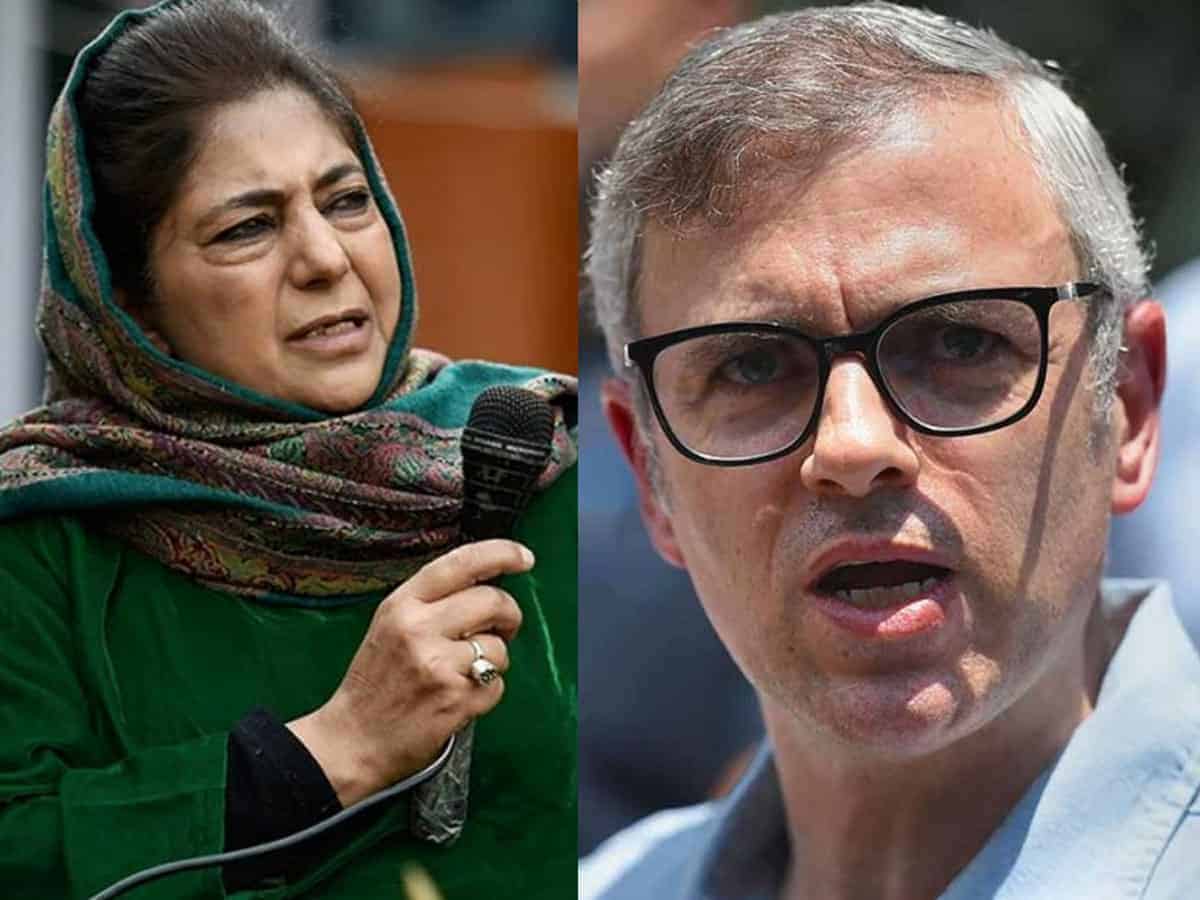By Arun Joshi
Two major regional parties in Jammu and Kashmir- National Conference and People’s Democratic Party have virtually split on regional lines . This was visibly evident on India’s 72nd Republic Day on Tuesday when the Jammu units of these parties unfurled the national tricolour and sung national anthem, while there was complete silence in these parties’ offices in the Kashmir Valley.
This is the opening sign of the split toward which these parties are heading in the days to come. It confirmed what had been talked about over the months , especially since the abrogation of Article 370 on August 5, 2019. The conflict is rooted in the ideological differences between the two units of these parties- one is a believer of separate Kashmiri identity , while the other finds its comfort zone of being Indian in the pure sense of the term.
National Conference leaders of Jammu held a small function at the party headquarters , unfurled the tricolour , exhibiting their commitment to the Indian nation. “ There will be no compromise on the nation’s integrity,” Devender Singh Rana, provincial president of the party, who has also been airing grievances and aspirations of Jammu region, had been saying all these days .
The party’s top leaders – Farooq Abdullah and Omar Abdullah – were as cold to the Republic Day celebrations as the subzero temperatures in Kashmir. They were off R-Day; cocooned in their homes, brooding over the loss of the special status of J&K.
Former Chief Minister Mehbooba Mufti’s party- PDP too, held a function at its Jammu office , where the handful of party workers saluted the national tricolour and concluded the function with recitation of national anthem. The PDP leadership in Kashmir did not share anything like this in the Valley.
This was just a small glimpse of the growing differences between the units of these parties on the two sides of Pir Panjal that lies in the foothills of mighty Himalayas and serves as a natural border between the two regions . Kashmir’s NC and PDP units are angry with the Government of India over the scrapping of Article 370 and bifurcation of the erstwhile state into two union territories of Ladakh and J&K. They are tapping on to anger of the Kashmiri population that viewed the change in the constitutional provision as an assault on their geography and demography.
While National Conference has voiced it time and again that it will have no truck with Delhi unless the special status is restored to Jammu and Kashmir , the PDP chief and former chief Mehbooba Mufti was categorical in saying that she would hold the tricolour only when state flag of J&K, which was pulled down after the August 5, 2019, was not restored . “ I will hold the two flags only when such a situation is restored,” Mehbooba has been saying it all along.
Jammu plains – Hindu dominated parts of Jammu region – are fiercely opposed to the Kashmiri domination , and their narrative of restoration of the pre-August 5 status. They are fearful of the return of the Kashmiri-Muslim domination in all affairs , and “ further perpetuation of discrimination against their region and fellow citizens.The region of Jammu has two peculiar features . it is more diverse than the Valley – it has plains , which are dominated by Hindus, and the hills are Muslim. More ethnicities and languages temper the region than any other part of the Union Territory .
Then there are hills where the Muslim majority is more aligned to the Valley . They are distrustful of people living in plains . They have a grouse against the plains for the latter have grabbed all the institutions , leaving hills high and dry . Secondly, there is a split view about the new brand of nationalism in the country nowadays.
National Conference and PDP are considered to be championing the cause of Kashmiri Muslims . Its Jammu units had been acting as loyal to the top leadership for petty gains .
Now, however, the regional unit of these parties have started offering resistance to the Kashmiri domination . They are heading toward asserting their individual identity . These are becoming more open day by day.
As the time has shown that the Assembly elections in J&K are not possible anytime soon , the political leaders in Jammu see no future with the parties . They acknowledge it quite candidly , their being in the Kashmir-centric parties is becoming a liability for them in the plains where political and emotional feelings are not only different but also in stark opposition to the ideologies of the Kashmir-based parties.
Arun Joshi is a senior journalist and author. Among his books is, “Eyewitness Kashmir: Teetering on Nuclear War”. He can be reached by email at ajoshi57@gmail.com
Views expressed are personal

